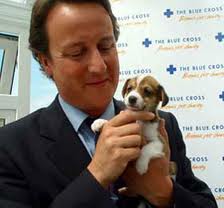
Either way... Motorists will loose out.
David Cameron has stepped up an increasingly public battle with the Treasury over petrol prices by telling George Osborne he must ‘share the pain’ with the motorist.
The Prime Minister yesterday again backed reforming the tax system to stabilise pump prices, just a day after the Chancellor’s number two, Danny Alexander, poured cold water on the idea.
Treasury officials are said to harbour doubts about whether his idea of a fair fuel stabiliser – where the rate of duty is cut as oil prices rise, and increased as they fall – can work.
At the weekend, Treasury Chief Secretary Mr Alexander said that the proposal would be given ‘due consideration’ but it was ‘difficult to see precisely how we achieve it’.
[ad]
There is concern on Tory backbenches about the need to respond to public anger over soaring fuel prices. But MPs are also surprised that Number Ten and the Treasury appear to be playing out differences on such a sensitive issue in public.
Pumped up: David Cameron wants to stabilise petrol prices through tax reforms – something the Treasury does not think can be achieved
The Prime Minister said yesterday he recognised the burden on motorists having to pay £1.30 a litre, insisting: ‘I do want to see some method of sharing the pain between the taxpayer and the motorist.’
He said the idea of a fuel stabiliser was being examined ahead of the Budget in March.
‘The point is there are other consequences of a higher oil price and we have to get those right,’ he added.
Another option for the Chancellor would be to postpone a 1p fuel duty increase announced by Labour and due to come into effect on April 1.
Alternatively, fuel discounts could be introduced for people living in remote areas.
He said the idea of a fuel stabiliser was being examined ahead of the Budget in March.
‘The point is there are other consequences of a higher oil price and we have to get those right,’ he added.
Another option for the Chancellor would be to postpone a 1p fuel duty increase announced by Labour and due to come into effect on April 1. Alternatively, fuel discounts could be introduced for people living in remote areas.
But some in government are concerned at the precedent it would set to respond to ‘special pleading’ from motorists, while insisting on the need for pain everywhere else.
Deputy Prime Minister Nick Clegg warned that curbing price rises would be difficult.
‘We all want to try to make sure that those pressures are relieved,’ he said.
‘The problem is simple, the solution is often more complex.’
The Tories launched a consultation on the idea of a fair fuel stabiliser in 2008. But the party’s election manifesto made no firm commitment to introduce such a system.
However, the independent Office for Budget Responsibility rubbished the idea in September, warning a temporary rise in the oil price of £10 per barrel would raise no money for the Treasury because of the impact on depressing the economy.
A permanent rise of £10 could lose Mr Osborne about £3billion a year, the OBR said.
A Government source denied there was a split.
But Shadow Transport Secretary Maria Eagle said: ‘Motorists want action on fuel prices, not rows between Number Ten and the Treasury and a Government in chaos.
‘Labour argued against the rise in VAT on fuel which has hit family budgets and small businesses hard.’
Source Dailymail.co.uk



